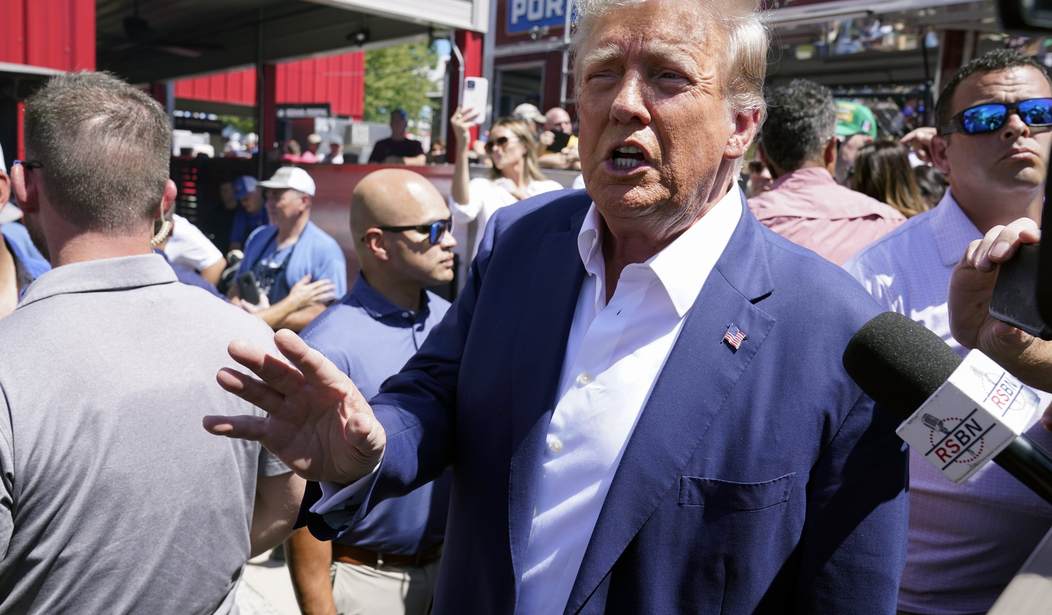This ain’t your daddy’s Republican Party. It’s not your grandaddy’s either. Today’s Republican Party is more conservative than Ronald Reagan’s “Three-legged Stool” comprising the religious right, fiscal conservatives, and neoconservative hawks, according to a New York Times-Sienna College poll.
But it’s not a majority of Trumpian populists either. MAGA supporters make up the largest faction of the Republican Party, but it’s a slim majority according to the “Six Kinds of Republicans” identified by the Times-Sienna poll. The types of Republicans in today’s party include moderate establishment, traditional conservatives, right-wingers, blue-collar populists, libertarian conservatives, and “newcomers” who don’t necessarily like Republicans as much as they hate woke Democrats.
“The Right Wing” makes up 26% of the Republican Party and are “bitter-end” Trump supporters. “Traditional Conservatives” are 26% of the party but are less wedded to support of Trump. As for the rest, the establishment makes up about 14% of GOP members, blue-collar populists about 12%, libertarians about 14%, and newcomers around 8%.
Blue-collar populists are with Mr. Trump on issues like race and immigration and identify as economic populists. The libertarian Republicans mirror the views of the Libertarian Party, including supporting small government, but are socially liberal and isolationist. They’re 14% of the party and are not as hostile to Trump as the establishment but not a font of strong support either.
Trump’s key constituencies would appear to be at loggerheads on some issues but are united in their strong support for the former president.
Mr. Trump’s dominance of the Republican Party is founded on an alliance between the Right Wing and Blue Collar Populists, two groups that combine to represent nearly 40 percent of Republicans — and about two-thirds of Mr. Trump’s MAGA base of seemingly unshakable support.
The Blue Collar Populists and the Right Wing don’t always agree. In particular, they split on the issues of the religious right, like same-sex marriage and abortion. But these two groups are big Trump supporters. They mostly agree with him on his defining issues and they share his deeply pessimistic, even cataclysmic view of the direction of the country, including fear of the declining white share of the population.
Most interesting in this poll is the issue of abortion and how it cuts across the Republican Party’s ideological factions.
Sixty-seven percent of the moderate establishment thinks abortion should be legal in most or all cases. Just 23% of traditional conservatives agree with that, and just 14% of the right wing also answered in the affirmative.
But 61% of blue-collar populists think abortion should be legal for most or all of the time, along with 46% of libertarian Republicans and 78% of the anti-woke crowd who identify as GOP.
The question isn’t so much whether these factions support abortion bans or strict restrictions on abortion, but rather what weight these groups give the issue of abortion in deciding who to vote for. For one group — the blue-collar populists — the answer might decide the election in 2024.
Over the last half century, some of them have been called the “backlash” vote, “white ethnics,” “Middle American Radicals,” Reagan Democrats and Obama-Trump voters. Today, they’re an important part of the Trump base.
Whites without a degree make up nearly three-quarters of this predominantly Northern group. But the Blue Collar Populists are surprisingly moderate on many of the issues that define the religious right. A clear majority of them say abortion should be legal, and they support same-sex marriage. Just 18 percent identify as “very conservative.”
Mr. Trump enjoys the “hard support” of about a third of the Republican Party. These are voters who will stick with him come hell, high water, and criminal convictions. Another third will support him conditionally, depending on how the criminal trials go. It’s a foregone conclusion that Trump will have enough support to win the nomination.
But beyond that, the election is too far away to judge the impact of Trump’s legal troubles on his general election chances. That may depend on who his opponent is going to be if, as it’s becoming more apparent, the Democratic nominee won’t be Joe Biden.










